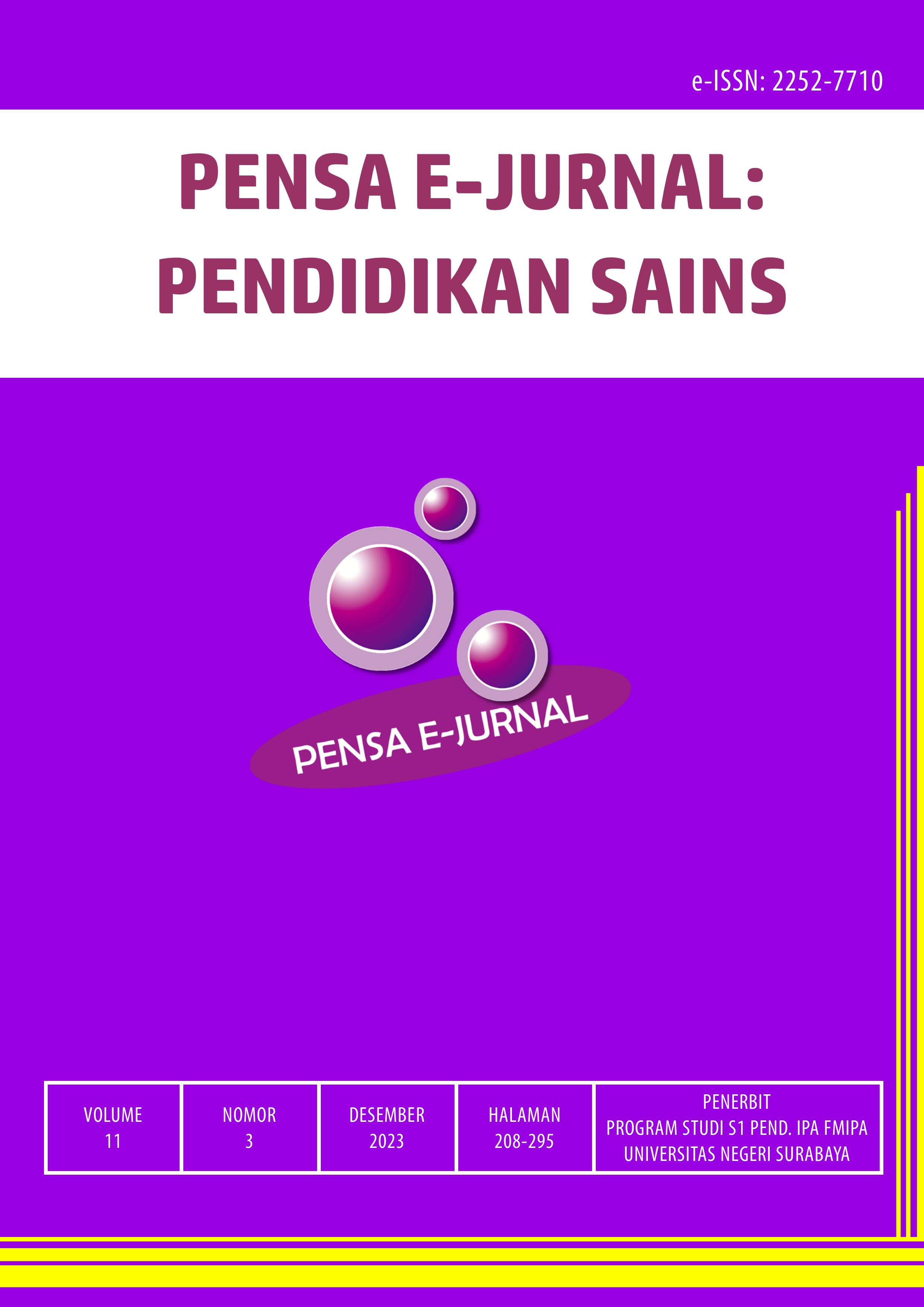PENINGKATAN SCIENCE PROCESS SKILLS SISWA MELALUI MODEL EXPERIENTIAL LEARNING PADA MATERI GETARAN
DOI:
https://doi.org/10.26740/pensa.v11i3.53797Keywords:
science process skills, experiential learning model, vibration materialDownloads
Download data is not yet available.
Downloads
Published
2023-12-31
How to Cite
Permatasari, J., & Nurita, T. (2023). PENINGKATAN SCIENCE PROCESS SKILLS SISWA MELALUI MODEL EXPERIENTIAL LEARNING PADA MATERI GETARAN. PENSA E-JURNAL: PENDIDIKAN SAINS, 11(3), 226–231. https://doi.org/10.26740/pensa.v11i3.53797
Issue
Section
Articles
 Abstract views: 141
,
Abstract views: 141
, PDF Downloads: 151
PDF Downloads: 151

















